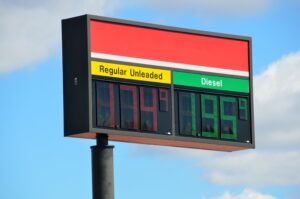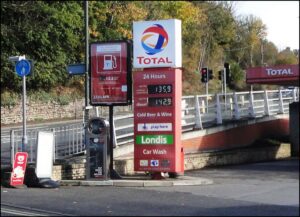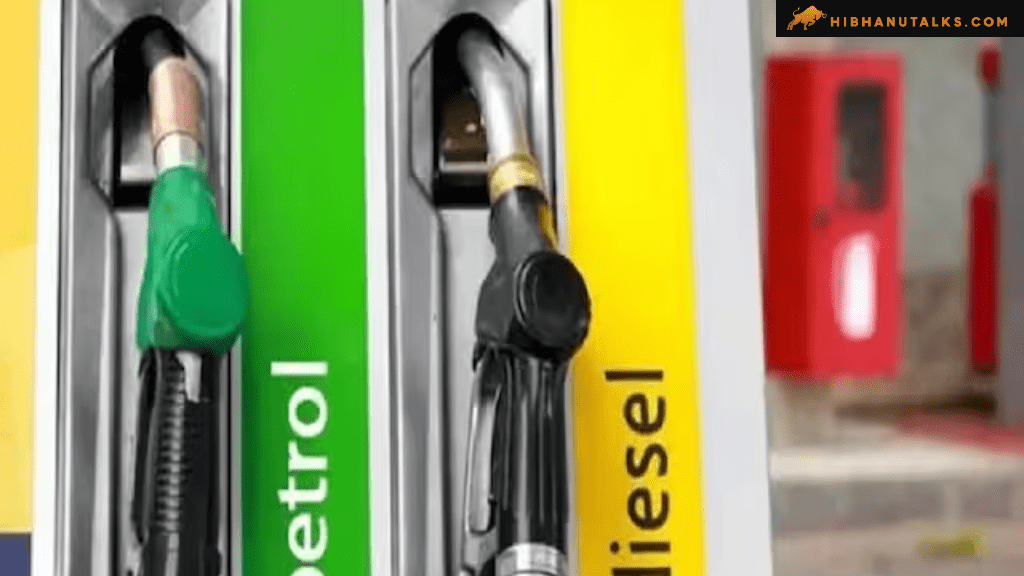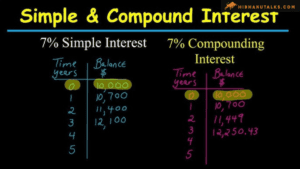
Government May Cut Diesel and Petrol Prices if Crude Oil Downtrend Persists
Contents
Diesel and Petrol Price
Government May Cut Diesel and Petrol Prices if Crude Oil Downtrend Persists
The Indian government is considering the possibility of reducing retail prices for diesel and petrol, as international crude oil prices have shown a significant decline. The Secretary to the Ministry of Petroleum and Natural Gas, Pankaj Jain, emphasized that any decision regarding price cuts will depend on the sustained downtrend in global oil prices.


Potential Fuel Price Cut
- Decline in Crude Oil Prices Recently, Brent crude oil prices fell below $70 per barrel, reaching the lowest point since December 2021. This significant drop has sparked discussions within the government about the potential to reduce retail prices of diesel and petrol. Pankaj Jain noted that the Ministry is currently reviewing the situation and will make a decision if the downward trend continues over an extended period.
- Oil Marketing Companies (OMCs) Role Oil marketing companies are key players in this decision. Jain mentioned that these companies would consider a cut in retail prices if crude oil prices remain low for a longer duration. However, he cautioned that decisions based on short-term trends may not be prudent, and the Ministry would need more time to assess the overall market scenario.
- OPEC+ Production and Market Influence The Organization of Petroleum Exporting Countries (OPEC+) had planned to increase oil production but has delayed the decision until December 2024. India, as a major oil consumer, has expressed its preference for higher oil production, especially as demand continues to rise. The delay in increasing output has contributed to the current price fluctuations.
- Windfall Tax Consideration Another factor under consideration is the Windfall Tax, which is calculated by the revenue department. Jain indicated that discussions are ongoing with the revenue department, and any decisions regarding the tax will come after careful consideration.
- Oil Price Outlook According to the US Energy Information Administration (EIA), while the Brent crude price dropped to $73 per barrel earlier this month, prices are expected to rise again due to withdrawals from global oil inventories. The EIA forecasts that Brent crude will average $82 per barrel in the fourth quarter of 2024 and $84 in 2025.
- Market Supply and Demand Factors Despite concerns about weaker oil demand, particularly from China, OPEC+ production cuts have led to a situation where global oil consumption is outpacing production. This supply-demand imbalance is likely to drive prices back up in the coming months. Analysts also predict that oil prices, currently at $70 per barrel, will not stay at this level for long due to the high marginal cost of production.


Advantages of a Potential Fuel Price Cut
- Relief for Consumers: A reduction in fuel prices would provide immediate financial relief to consumers, lowering transportation and household expenses.
- Economic Boost: Lower fuel prices could stimulate economic activity by reducing operating costs for businesses, leading to increased productivity and growth.
- Control Over Inflation: Fuel prices have a direct impact on inflation. A cut in fuel costs could help keep inflation in check, especially in sectors that rely heavily on transportation.
- Government Flexibility: The government can capitalize on the declining crude oil prices to adjust fuel rates, enhancing its public image ahead of elections or other political events.


Disadvantages of a Potential Fuel Price Cut
- Uncertainty in Crude Prices: The volatility in global crude oil prices means that any price cut may be temporary. If prices rebound, the government might face pressure to raise rates again.
- Revenue Impact: Lower fuel prices could reduce the government’s tax revenue from fuel sales, impacting fiscal health, especially if crude oil prices rise again.
- Delayed Decisions by OPEC+: The delay in production increases by OPEC+ could limit the long-term benefits of a fuel price reduction, as supply may not keep up with demand.
- Dependency on Imports: India’s heavy dependence on oil imports means that domestic prices are highly susceptible to global market fluctuations, making it difficult to sustain any price cuts in the long run.
Conclusion
The government is taking a cautious approach toward reducing diesel and petrol prices, waiting to see if the current decline in crude oil prices continues for an extended period. While a price cut would provide much-needed relief to consumers and boost the economy, it must be carefully timed to ensure it aligns with global market conditions. The decision also hinges on developments within OPEC+ and other global factors influencing oil supply and demand.


FAQs
- Will fuel prices be reduced soon? The government is considering reducing fuel prices if the current decline in crude oil prices continues for a longer period, but no immediate decision has been made.
- What caused the recent drop in crude oil prices? Brent crude prices fell below $70 per barrel due to factors such as weaker demand and ample supplies, influenced by global market developments, including OPEC+ production delays.
- How will the government decide on reducing fuel prices? The Ministry of Petroleum and Natural Gas is reviewing the price trends over time. A price cut may be implemented if the downward trend persists.
- What is the expected future trend for oil prices? According to the US EIA, oil prices are expected to rebound, with Brent crude projected to average $82 per barrel in Q4 2024 and $84 per barrel in 2025.
- How does OPEC+ impact oil prices? OPEC+ plays a crucial role in regulating global oil supply. The delay in increasing production has contributed to the current price fluctuations.
- What is Windfall Tax, and how does it affect fuel prices? Windfall Tax is imposed on companies when they make unexpectedly high profits. The decision on the tax is being reviewed, and it could affect the final price of fuels.
Diesel and Petrol Price
Ayushman Bharat PM-JAY Expands to Cover Senior Citizens Aged 70 and Above – A Game Changer for Healthcare!





















1 comment